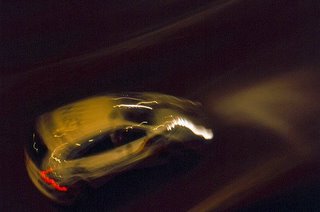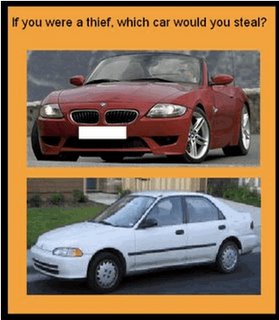No drain, no gain?
by Anonymous
"Brain drain" occurs when the most talented workers from poor countries set out for more promising job prospects in rich countries. Indeed, American technology firms, like Intel, want the United States to offer automatic visa extensions for foreign students who earn advanced degrees in science and engineering from American universities. Some leaders in the European Union want to go one step further, offering citizenship to qualifed foreigners who earn doctorates from European universities.
As this article from the Economist magazine points out, (brain drain) has two effects in poor countries:
1. The drain effect: The brightest, most qualified, and most productive people leave for greener pastures.
2. The motivation effect: The prospect of a better life encourages others to pursue higher education.
If the motivation effect trumps the drain effect, brain drain might create brain gain in poor countries. Brain gain makes poor populations more productive, and potentially more prosperous. The article discusses just how the effects play out in various countries.
2. Why does Intel want more foreign-born engineers? How does brain drain affect the market for (and wages of) skilled labor in rich nations like the United States?
3. Think about the two effects of brain drain. How does brain drain affect the market for skilled labor in poor countries if the drain effect dominates? What if the motivation effect dominates?
4. Human capital is the stock of skills, knowledge, and experience embodied in the labor force. Growth in human capital generates economic growth. How will brain drain affect economic growth in poor countries if the motivation effect outweighs the drain effect?
5. In what ways does brain drain promote the exchange of goods, services, and ideas among nations?
6. Why might relatively rich countries loosen their immigration policies toward qualified workers in the near future?
By Brandon Fuller
As this article from the Economist magazine points out, (brain drain) has two effects in poor countries:
1. The drain effect: The brightest, most qualified, and most productive people leave for greener pastures.
2. The motivation effect: The prospect of a better life encourages others to pursue higher education.
If the motivation effect trumps the drain effect, brain drain might create brain gain in poor countries. Brain gain makes poor populations more productive, and potentially more prosperous. The article discusses just how the effects play out in various countries.
1. In what ways is brain drain analagous to Japanese and Hispanic ball players in the major leagues, or Eastern Europeans in the NBA? Do you think opportunities with pro teams in the United States boost the level of competition elsewhere in the world?
2. Why does Intel want more foreign-born engineers? How does brain drain affect the market for (and wages of) skilled labor in rich nations like the United States?
3. Think about the two effects of brain drain. How does brain drain affect the market for skilled labor in poor countries if the drain effect dominates? What if the motivation effect dominates?
4. Human capital is the stock of skills, knowledge, and experience embodied in the labor force. Growth in human capital generates economic growth. How will brain drain affect economic growth in poor countries if the motivation effect outweighs the drain effect?
5. In what ways does brain drain promote the exchange of goods, services, and ideas among nations?
6. Why might relatively rich countries loosen their immigration policies toward qualified workers in the near future?
By Brandon Fuller







